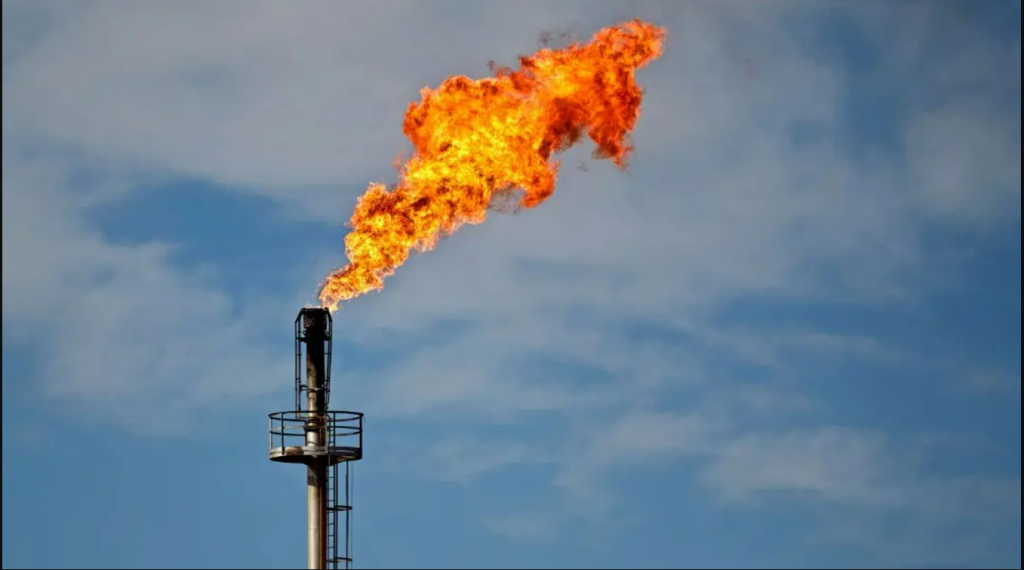DESPITE the Federal Government commitment to achieving zero flaring by 2060, on a year-on-year, YoY, basis, gas flaring increased by 10 per cent to 138.7 million metric standard cubic feet, MSCF, of gas in the first half (January – June) of 2023, from 126.1 MSCF in the corresponding period of 2022.
The flared gas was worth $485.3 million translates to N373 billion at the current Central Bank of Nigeria, CBN, exchange of N768.6 per United States dollar.
The National Oil Spill Detection and Response Agency, NOSDRA, which disclosed this in its latest data, stated that the oil-producing companies responsible for the flaring would pay $277.3 million (an equivalent of N213 billion) for breaching the gas flaring laws during the period.
But judging from previous flare reports, the oil companies are not likely to pay the penalties soon as several billions of dollars are still outstanding against the firms.
However, the report noted that the volume of gas flared during the period was equivalent to 7.4 million tonnes of carbon dioxide emission, which could have been utilized to generate 13,900 gigawatts of electricity per hour.
NOSDRA lamented that despite efforts to reduce gas flaring, it has continued in Nigeria since the 1950s, releasing carbon dioxide and other gaseous substances into the atmosphere.
This is even as the House of Representatives said it will begin probe into $2.5 billion annual loss to gas flaring.
Already, the Speaker of the House of Representatives, Tajudeen Abbas has inaugurated an Ad hoc Committee to investigate alleged 9.05 billion dollar-revenue loss from gas flaring in the last one decade in Nigeria.
The committee was charged to get root causes of gas flaring and make recommendations to end the menace, stating that the probe is an acknowledgement of the urgent need to understand and mitigate the environmental, social, and economic impacts of this practice.
He noted that the flared gas represents lost revenue that could have been generated through its sale or utilization, adding that official records indicate that the country losses about 2.5 billion dollars annually to gas flaring.
He maintained that as a major contributor to climate change and environmental degradation, gas flaring has direct and indirect impacts on soil, water, and wildlife.
Meanwhile, the Commission Chief Executive, Nigerian Upstream Petroleum Regulatory Commission, NUPRC, Gbenga Komolafe, has insisted that the nation’s Petroleum Industry Act, PIA, has adequate provisions to end flaring.
He said: “The PIA has proscribed gas flaring. There is a high penalty against flaring and NUPRC is unsparing. Besides, the winners of the Nigerian Gas Flare Commercialisation Programme, NGFCP, would work toward ending the gas flaring.”

